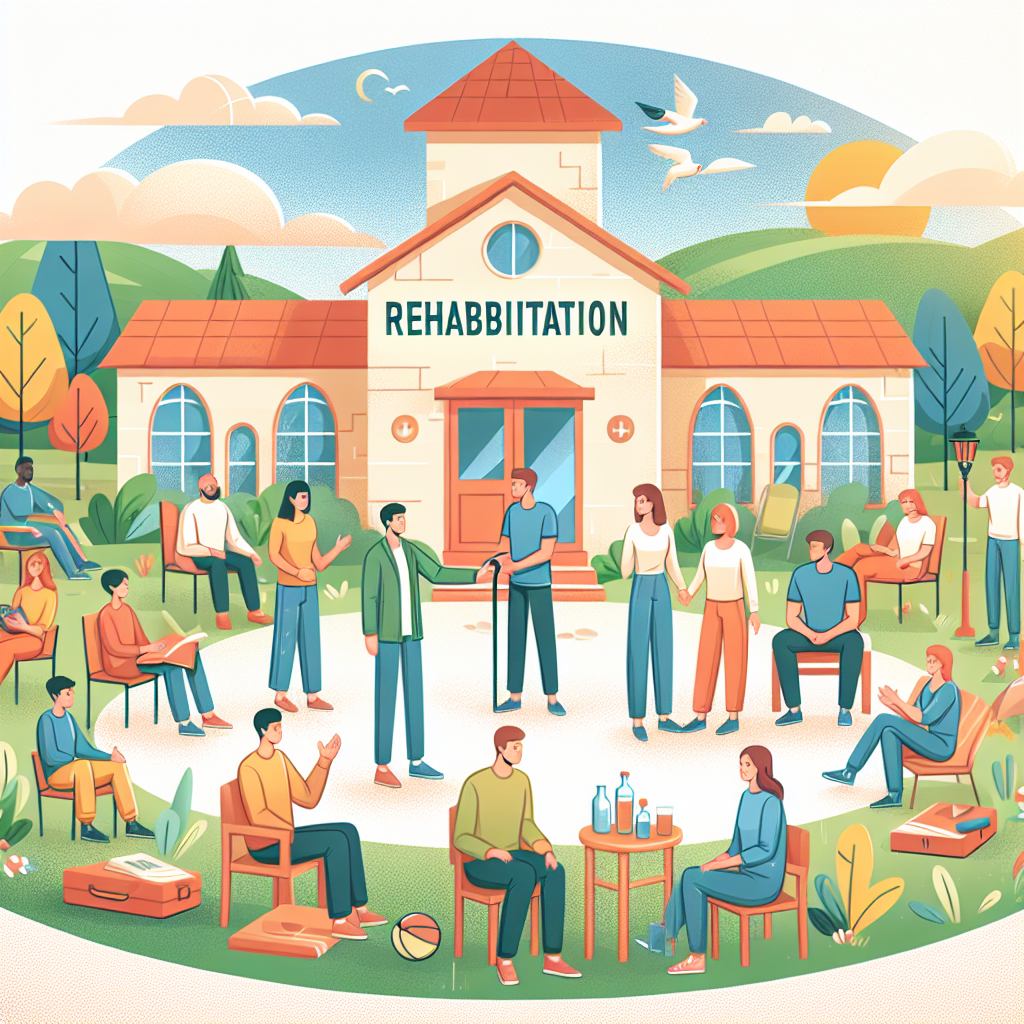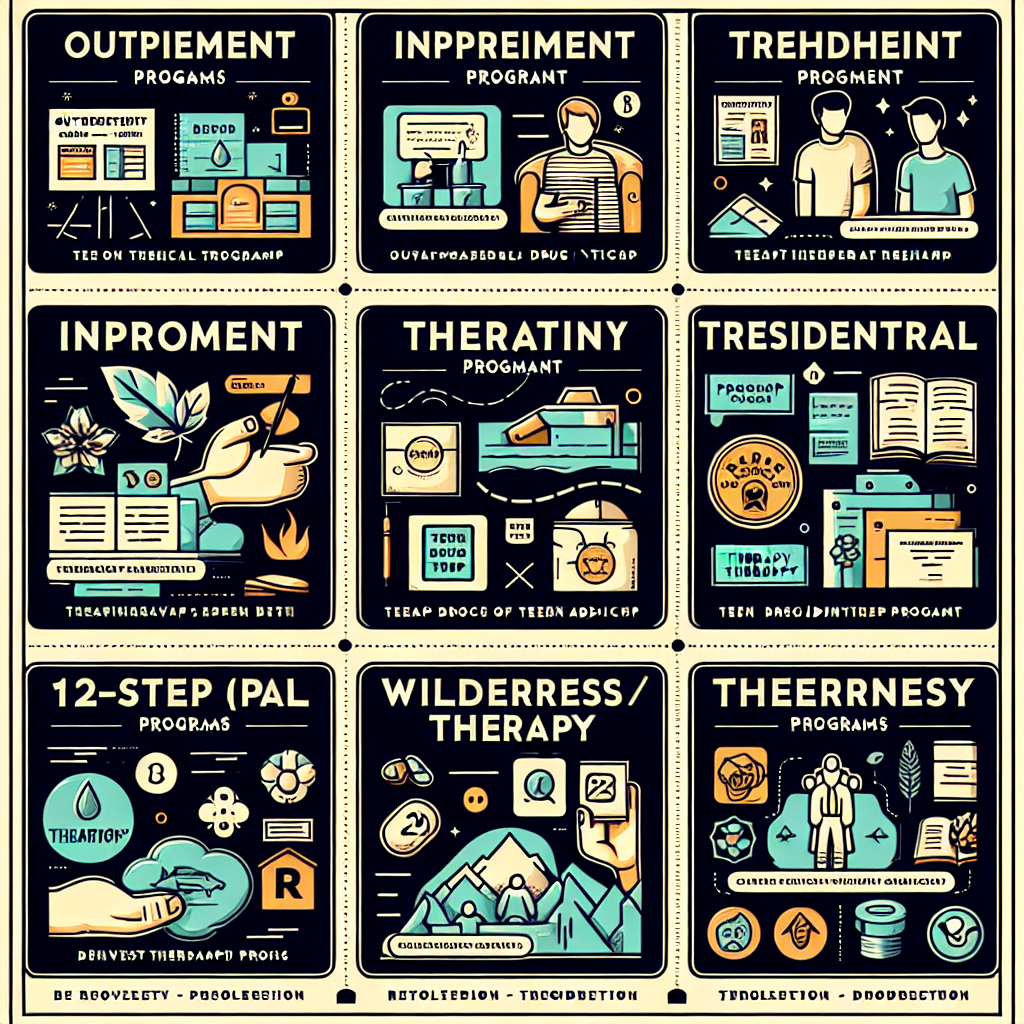-
Table of Contents

“Empowering Futures: Guiding Young Adults to Overcome Gambling Addiction”
Introduction
Gambling addiction among young adults is a growing concern, with significant implications for their mental health, financial stability, and overall well-being. Rehabilitation programs play a crucial role in supporting young adults through the recovery process, offering a structured and supportive environment tailored to their unique needs. These programs typically combine various therapeutic approaches, including cognitive-behavioral therapy, group counseling, and family therapy, to address the underlying issues contributing to the addiction. Additionally, rehab centers often provide educational resources and life skills training to help young adults develop healthier coping mechanisms and make informed decisions. By fostering a sense of community and providing continuous support, rehab programs empower young adults to overcome their gambling addiction and build a foundation for a healthier, more fulfilling future.
The Role Of Rehab In Addressing Gambling Addiction Among Young Adults
Gambling addiction among young adults is a growing concern, with the allure of quick money and the thrill of the game drawing many into its grasp. The role of rehab in addressing this issue is crucial, offering a structured and supportive environment where young adults can begin their journey to recovery. Rehab centers provide a multifaceted approach to treatment, recognizing that gambling addiction is not just a matter of willpower but a complex interplay of psychological, social, and sometimes even biological factors.
One of the primary ways rehab supports young adults is through comprehensive assessment and personalized treatment plans. Upon entering a rehab facility, individuals undergo thorough evaluations to understand the extent of their addiction and any co-occurring mental health issues, such as anxiety or depression. This initial assessment is vital as it lays the groundwork for a tailored treatment plan that addresses the unique needs of each individual. By focusing on personalized care, rehab centers can more effectively target the root causes of gambling addiction and provide the necessary tools for recovery.
Moreover, rehab centers offer a variety of therapeutic interventions designed to help young adults understand and manage their addiction. Cognitive-behavioral therapy (CBT) is one of the most effective treatments for gambling addiction, helping individuals identify and change the thought patterns and behaviors that contribute to their compulsive gambling. Through CBT, young adults learn to develop healthier coping mechanisms and strategies to resist the urge to gamble. Additionally, group therapy sessions provide a supportive community where individuals can share their experiences, gain insights from others, and build a network of support that extends beyond the rehab facility.
In addition to therapy, rehab centers often incorporate educational programs that teach young adults about the nature of gambling addiction and its impact on their lives. These programs aim to increase awareness and understanding, empowering individuals to make informed decisions about their behavior. By educating young adults about the risks and consequences of gambling, rehab centers help them develop a more realistic perspective and a stronger resolve to avoid relapse.
Another critical aspect of rehab is the focus on holistic well-being. Many rehab centers offer activities and programs that promote physical health, such as exercise classes, yoga, and nutrition counseling. These activities not only improve physical health but also enhance mental well-being, providing a balanced approach to recovery. By addressing the physical, emotional, and psychological aspects of addiction, rehab centers create a comprehensive support system that fosters long-term recovery.
Furthermore, rehab centers recognize the importance of family involvement in the recovery process. Family therapy sessions are often included in treatment plans, helping to repair relationships that may have been strained by the individual’s gambling addiction. By involving family members, rehab centers ensure that young adults have a strong support system when they return home, which is crucial for maintaining sobriety and preventing relapse.
Finally, the transition from rehab to everyday life is a critical phase in the recovery process. Rehab centers provide aftercare programs and resources to help young adults navigate this transition smoothly. These programs may include ongoing therapy, support groups, and access to community resources. By offering continued support, rehab centers help individuals build a stable foundation for a gambling-free life.
In conclusion, rehab plays an indispensable role in addressing gambling addiction among young adults. Through personalized treatment plans, therapeutic interventions, educational programs, holistic well-being activities, family involvement, and aftercare support, rehab centers provide a comprehensive and supportive environment for recovery. By addressing the multifaceted nature of gambling addiction, rehab centers empower young adults to reclaim their lives and build a brighter, addiction-free future.
Effective Rehab Strategies For Young Adults Battling Gambling Addiction
Rehabilitation centers play a crucial role in supporting young adults battling gambling addiction, offering a lifeline to those who find themselves ensnared in the throes of compulsive gambling. The journey to recovery is often fraught with challenges, but effective rehab strategies can make a significant difference in helping young adults reclaim their lives. One of the most impactful strategies is the use of personalized treatment plans. Recognizing that each individual’s experience with gambling addiction is unique, rehab centers tailor their approaches to meet the specific needs of each patient. This personalized care ensures that the underlying issues contributing to the addiction are addressed, whether they stem from emotional distress, social pressures, or other factors.
In addition to personalized treatment plans, cognitive-behavioral therapy (CBT) is a cornerstone of effective rehab for young adults. CBT helps individuals identify and change the thought patterns and behaviors that fuel their gambling addiction. By learning to recognize triggers and develop healthier coping mechanisms, young adults can break the cycle of addiction and build a foundation for long-term recovery. Moreover, group therapy sessions provide a supportive environment where individuals can share their experiences and learn from others who are facing similar challenges. This sense of community fosters a feeling of belonging and reduces the isolation that often accompanies addiction.
Another essential component of rehab for young adults is the incorporation of life skills training. Many young adults struggling with gambling addiction may have neglected important aspects of their lives, such as education, employment, and personal relationships. Life skills training helps them develop the tools they need to manage their responsibilities and build a more balanced and fulfilling life. This holistic approach not only addresses the addiction itself but also empowers individuals to create a stable and healthy future.
Furthermore, family involvement is a critical element in the recovery process. Rehab centers often offer family therapy sessions to help repair and strengthen relationships that may have been damaged by the addiction. By involving family members in the recovery process, young adults receive the support and encouragement they need to stay committed to their journey. Family therapy also educates loved ones about the nature of gambling addiction, fostering a deeper understanding and reducing the stigma associated with it.
In addition to these therapeutic strategies, many rehab centers incorporate recreational activities and mindfulness practices into their programs. Engaging in physical activities, such as sports or yoga, helps young adults relieve stress and develop a sense of accomplishment. Mindfulness practices, such as meditation and deep breathing exercises, teach individuals to stay present and manage their emotions more effectively. These activities not only promote physical and mental well-being but also provide healthy alternatives to gambling.
Lastly, aftercare support is vital for maintaining long-term recovery. Rehab centers often provide ongoing counseling, support groups, and resources to help young adults navigate the challenges they may face after leaving the facility. This continued support ensures that individuals have access to the tools and guidance they need to stay on track and avoid relapse.
In conclusion, effective rehab strategies for young adults battling gambling addiction encompass a comprehensive and personalized approach. By addressing the unique needs of each individual, incorporating evidence-based therapies, involving family members, and providing ongoing support, rehab centers offer a pathway to recovery and a brighter future. The journey may be challenging, but with the right support and strategies, young adults can overcome their addiction and build a life filled with hope and possibility.
Q&A
1. **Question:** How does rehab help young adults develop coping strategies for gambling addiction?
**Answer:** Rehab provides young adults with therapy sessions, such as cognitive-behavioral therapy (CBT), to help them identify triggers and develop healthy coping mechanisms to manage urges and stress without resorting to gambling.
2. **Question:** What role does peer support play in the recovery process for young adults in rehab for gambling addiction?
**Answer:** Peer support in rehab offers young adults a sense of community and understanding, allowing them to share experiences, gain encouragement, and build a support network that fosters accountability and motivation throughout their recovery journey.
Conclusion
Rehabilitation programs play a crucial role in supporting young adults recovering from gambling addiction by providing structured environments, professional counseling, and peer support. These programs offer tailored treatment plans that address the unique psychological, social, and emotional needs of young adults. Through cognitive-behavioral therapy, life skills training, and relapse prevention strategies, rehab helps individuals develop healthier coping mechanisms and rebuild their lives. Additionally, the supportive community within rehab fosters a sense of belonging and accountability, which is essential for sustained recovery. Overall, rehab provides the comprehensive care and resources necessary for young adults to overcome gambling addiction and achieve long-term well-being.



